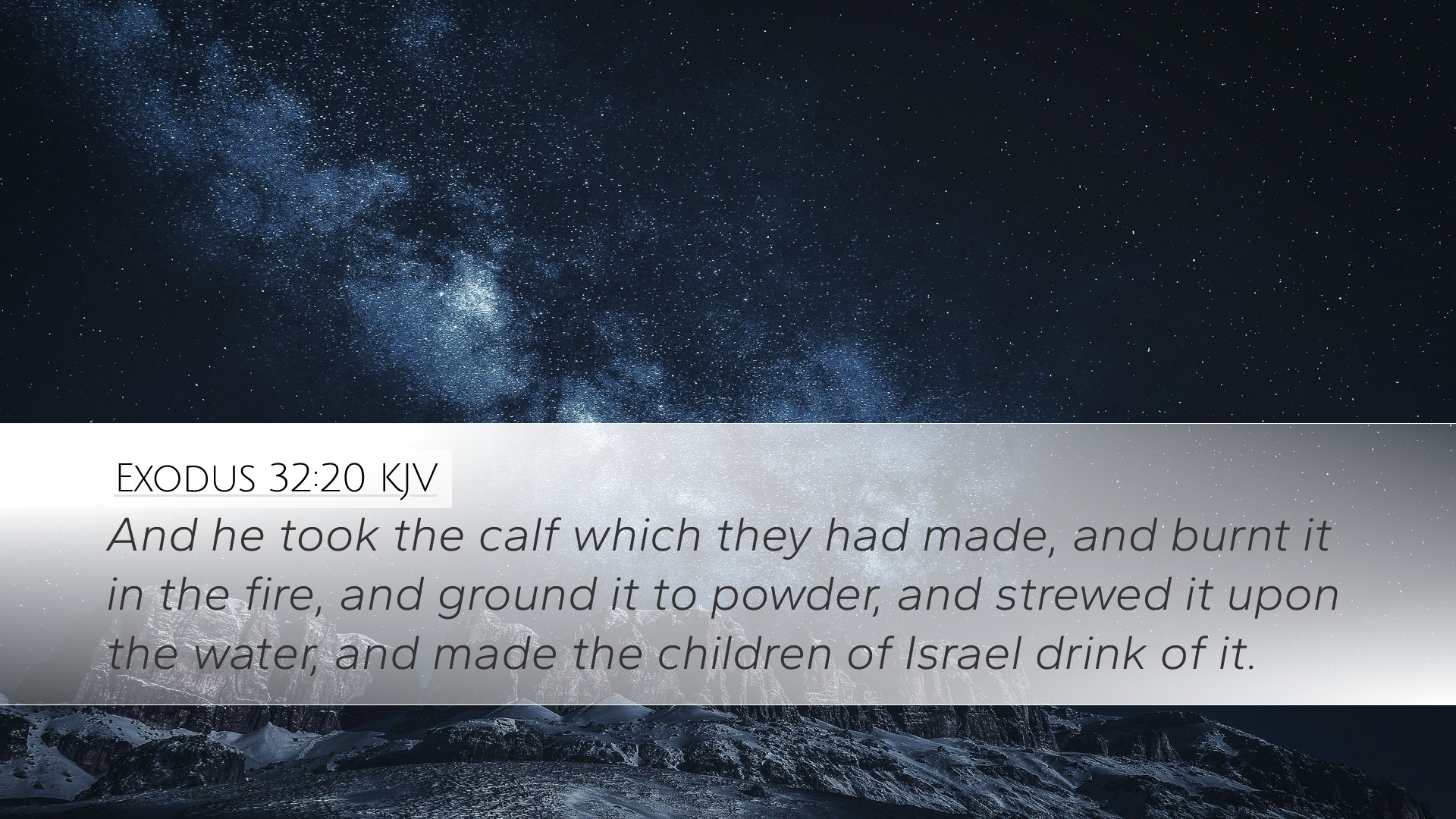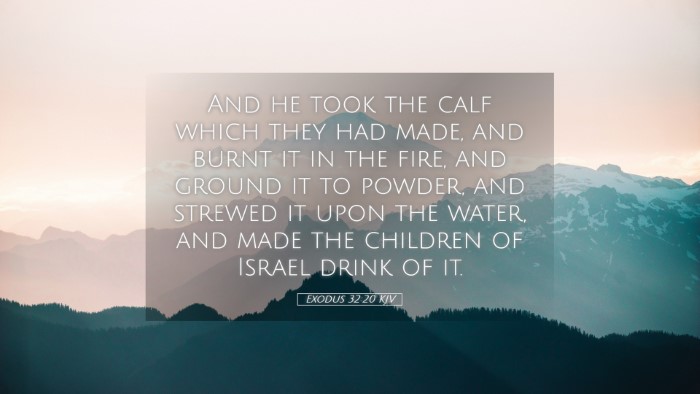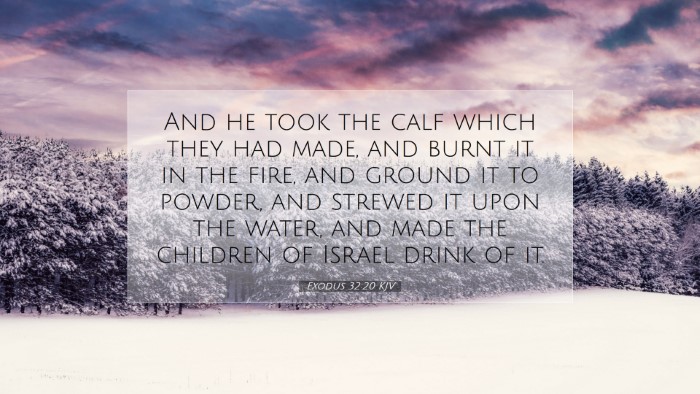Commentary on Exodus 32:20
Exodus 32:20 (KJV): "And he took the calf which they had made, and burnt it in the fire, and ground it to powder, and strawed it upon the waters, and made the children of Israel drink of it."
Introduction
This verse describes a profound moment of judgment and symbolic action following the idolatry of Israel, marked by Moses' reaction upon discovering the people worshipping the golden calf. The verse encapsulates themes of sin, punishment, and the consequences of idolatrous acts.
Historical Context
The context of Exodus 32 lies in the wilderness where the Israelites, having recently been freed from Egyptian bondage, have entered into a covenant with God. Moses, their mediator, ascends Mount Sinai to receive the Law. During his absence, the people, in their impatience and fear, turn to a golden calf worship, breaking the first two commandments almost instantly.
This act signifies both disobedience and a lack of faith in God's unobservable presence. Moses' actions in this verse serve to highlight the seriousness of their transgression.
Commentary Insights
1. The Nature of the Sin
Moses' anger and actions upon witnessing the idolatry reveal the depth of Israel’s sin. Albert Barnes elaborates that this idol was a direct repudiation of God’s commands. The golden calf represented not only a return to paganism but also a profound misunderstanding of God’s nature and the covenant He established with them.
2. Moses' Actions: Symbolism and Judgment
The process of burning the idol, grinding it to powder, and making the Israelites drink from it carries rich symbolism. Matthew Henry notes that Moses effectively rendered the idol powerless and humiliating, symbolizing the destruction of their false god. This act serves multiple purposes:
- Judgment: It signifies divine judgment on the sin of idolatry.
- Symbolic Cleansing: The act of drinking it can be seen as a way of forcing the people to confront their idolatry and the bitterness of their sin.
Adam Clarke comments on the necessity of this act in showcasing the futility and transient nature of idols, reinforcing that true worship must not compromise with sin.
3. Theological Implications
This incident exposes several critical theological truths:
- The Holiness of God: The purity and holiness of God are paramount, and sin incurs serious consequences.
- God’s Justice: God's justice demands a reckoning for idolatry and disobedience by His covenant people.
- Human Fallibility: The account illustrates human weakness and propensity towards idolatry, even amidst direct divine revelation.
4. Pastoral Applications
For pastors and spiritual leaders, this verse serves as a reminder to be vigilant against modern forms of idolatry that can creep into the lives of believers. It calls for a sincere and introspective evaluation of what may have taken precedence over the true worship and obedience to God.
Leaders are encouraged to teach their congregations about the seriousness of idolatry in any form, whether it be materialism, self-exaltation, or other distractions from a faithful relationship with God.
5. Exhortation to Faithfulness
The actions of Moses culminate in a powerful call to integrity in worship. The need for purity in our relationship with God cannot be overstated. As leaders and students of the Word, we must embrace the lessons from this narrative, ensuring that holiness is upheld in our lives and ministries.
Conclusion
Exodus 32:20 vividly illustrates a critical turning point for Israel, underscoring the severity of sin and the necessity of worship that aligns with the character of God. The combination of Moses' fiery response and the symbolic disassembling of the calf drives home the centrality of loyalty to God in the life of His people. As we reflect on this passage, let us commit ourselves to worship in spirit and truth, avoiding the snares of idolatry that so easily entrap.


